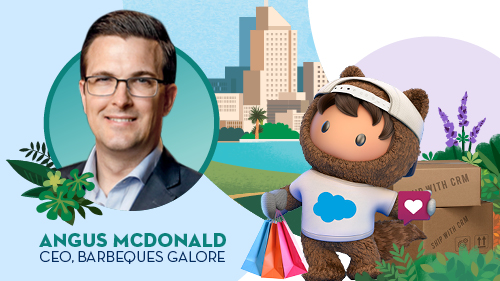Dreamforce to You Industries Summit 2021: 8 Best Moments
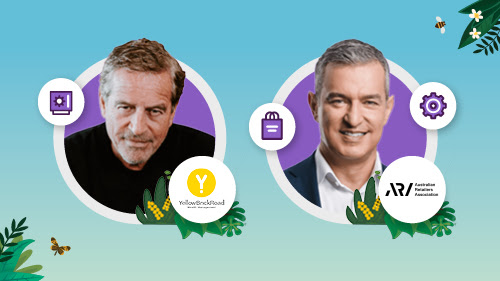


Excitement levels were high for Salesforce’s Industries Summit: Retail, Consumer Goods and Manufacturing and Financial Services.
Salesforce Staff
Excitement levels were high for Salesforce’s Industries Summit: Retail, Consumer Goods and Manufacturing and Financial Services. As part of this year’s Dreamforce to You, the events deep dived into today’s top-of-mind topics, including personalisation, new technology, connected relationships, and digital transformation – all in a rapidly changing business environment.
A wealth of information can be found in the on-demand recordings of the Retail, Consumer Goods and Manufacturing and Financial Services events, but in the meantime, here are eight moments worth committing to memory.
The best moments at the Retail, Consumer Goods and Manufacturing event
Things are looking up according to the Australian Retailers Association
Australian Retailers Association’s CEO Paul Zahra opened the event on a positive note: retailers have successfully adapted to a digital-first world. With ecommerce functions such as click and collect here to stay, Zahra encouraged retailers to embrace the new normal rather than return to business as usual.
“Once consumers change their habits, they tend to stick,” says Zahra.
Digital innovations such as live chat, virtual appointments and video experiences are delivering on customer expectations, and retailers should continue to invest in new technologies to ensure they are not left behind.
Perth Airport is a model for balancing the physical and the digital
Chief Commercial Officer of Perth Airport, Kate Holsgrove, provided food for thought for those in the retail space who must move further into digital without sacrificing face-to-face time.
In the past, the customer journey at Perth Airport was a rigid process, where disconnected systems and touchpoints made knowing and engaging with the individual flyer almost impossible.
The airport has since made use of the unavoidable downtick in traffic to determine how the multitude of online and real-world experiences one encounters before, during and after flying can be digitally integrated to create a single view of the customer.
“For us, this latest digital marketplace platform is giving us a new foundation to be able to connect all of those dots,” Holsgrove explains. “To be able to bring a lot of brands and experiences together in one place”.
“Now, we’re not only able to know that ‘Bob’ is the same Bob in the car park and in our terminals, but we’re also able to know he travels 20 times a year, he drinks whiskey, that convenience is really important to him and when his flight lands at 4am he wants to get in and out as quickly as possible.”
Good360 inspires everyone with their contributions to social issues
Those who had and hadn’t heard of Salesforce partner Good360 Australia were touched by founder Alison Covington’s passion for social action. The 2021 Circle Award-winner Good360 matches brand-new, non-perishable goods (manufactured goods that never hit the market) with Australians in need.
Companies such as BIG W, Harvey Norman, Colgate and Lego donate spare and surplus goods to the cause, and in less than a decade, Good360 has given 22 million individual items a new home. For Alison, this figure is only the beginning. And with more and more vulnerable people struggling after recent challenges such as bushfires and the pandemic, giving has taken on a new meaning.
“There are three ways to give,” says Covington. “Spare and surplus, purposeful giving during challenging times and just to create joy in people’s lives”.
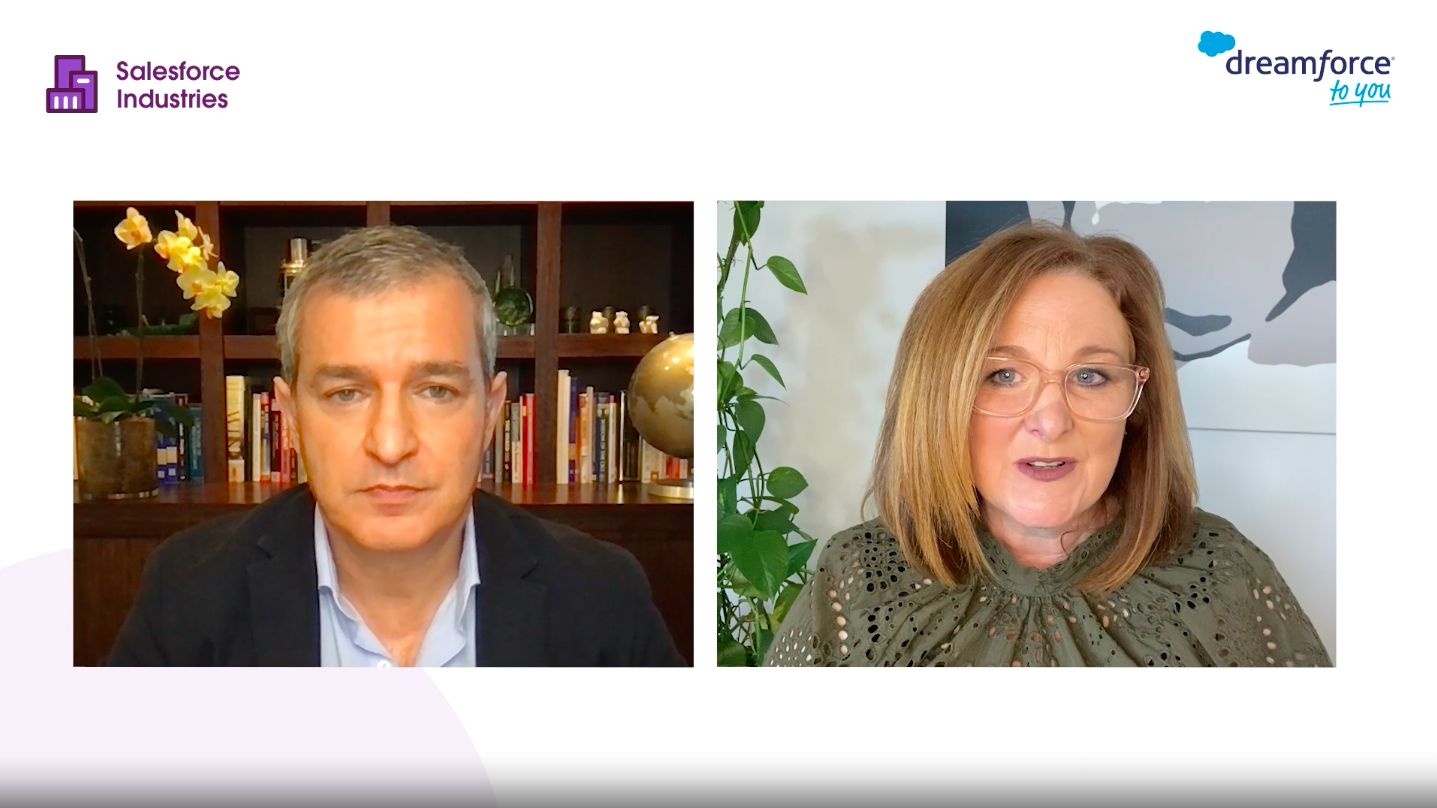
Companies such as BIG W, Harvey Norman, Colgate and Lego donate spare and surplus goods to the cause, and in less than a decade, Good360 has given 22 million individual items a new home. For Alison, this figure is only the beginning. And with more and more vulnerable people struggling after recent challenges such as bushfires and the pandemic, giving has taken on a new meaning.
“There are three ways to give,” says Covington. “Spare and surplus, purposeful giving during challenging times and just to create joy in people’s lives”.
Roller door inventors reap massive growth from customer journey visibility
Murray Allen, Executive General Manager from home security pioneers B&D Doors revealed that throughout 75-years of operations, it’s been the past few years of innovation that have taken them to another level.
While B&D Doors had always put great effort into knowing their customer journeys, it wasn’t until making use of the Salesforce ecosystem that they were able to see everything from a single, data-driven view. They were then able to deliver exactly what a customer wants during each moment of truth along the journey.
“Salesforce has given us that full visibility. And do you know the impact that it had? It actually changed our conversion rate by about another 20 percentage-points. A 20 percentage-point difference by not doing any more work — just being smarter about it.”
Retail Trailblazers harness new technology to grow during recent seismic shifts
Rachel Khoo, Head of Digital, revealed that after seeing the data on how much people are willing to spend online and sight-unseen, Amart Furniture implemented new digital strategies that continue to bear fruit.
One such strategy involved listing a range of smaller, ‘online exclusive’ items that both encouraged customer frequency and attracted new customers. These lower-cost, on-trend and high-turnover items also led to customers testing the waters before moving onto bigger-ticket items. For brick-and-mortar stores, such strategies are foreign but game-changing.
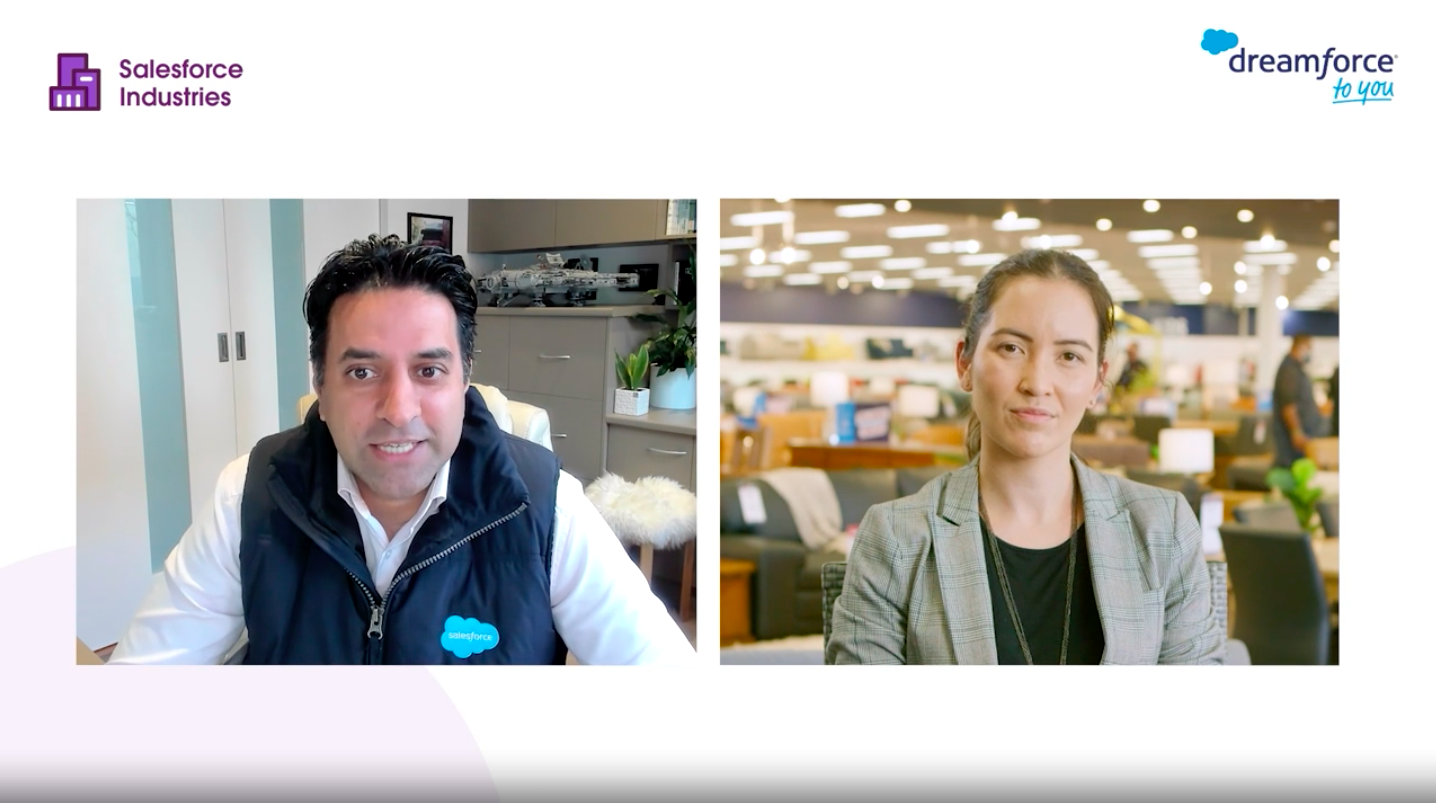
Similarly, My Muscle Chef has cornered a niche food delivery market by using first-party data and customer insights. CEO & co-founder Tushar Menon explains how:
“Where we really stand out compared to other players in the market is in the sophistication of our decision-making process. When it comes to NPD, UX, operations and processes, data is now the foundation of all the decisions that we make in business.”
Since turning to a data-driven approach in 2018, Salesforce products have assisted My Muscle Chef to increase revenue from $27 million to $200 million this financial year.
The best moments at the Financial Services event
Customer advocacy for both traditional and digital/direct banks is up
After Salesforce commissioned a study into the Customer Imperative in Financial Services, Katrina Cuthell, a partner from Bain & Company revealed some astounding stats.
Thirty percent of traditional bank (and 20% of digital/direct bank) customers surveyed said they were more likely to recommend their bank, as a result of that bank’s actions during the pandemic.
“This is a really significant shift and we don’t often see strong momentum in customer advocacy in such a short period of time,” Cuthell proclaims.
The reason for such advocacy is due to banks being more flexible on loan repayments, more proactive in communications, and enhancing credit options.
Cuthell goes on to say that banks and insurers now have a wealth of opportunity to build on this momentum; to draw insights from integrated data and find additional ways to engage the individual customer and their needs.
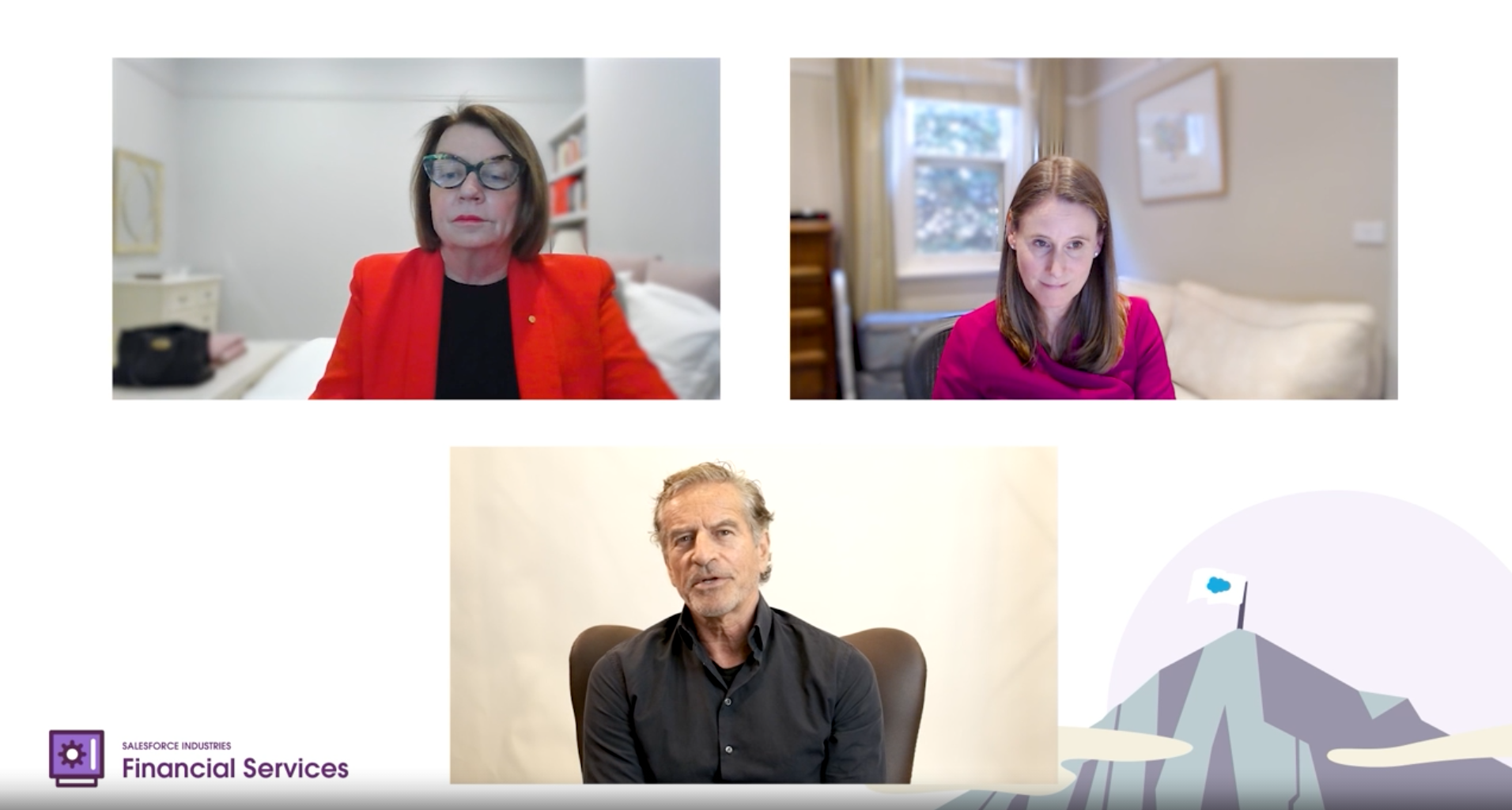
Two financial experts discussed the lay of the land
Innovator and entrepreneur, Mark Bouris, sat down with Salesforce’s Area VP Financial Services, Scott Cumming, to reflect on the past year and what’s top of mind for Financial Service professionals.
The two financial experts shared four key ingredients to customer success:
- Digital transformations are no longer the responsibility of the CTO or IT teams.
- If you truly want customer success, you need to have board sponsorship of a digital transformation.
- Data is vital to understanding your customer.
- Customer success is all about a deeply personalised digital experience that offers human intervention only when necessary.
Australian Banking Association CEO names the hurdles that financial services can clear
When asked which “roadblocks” are getting in the way of great digital-first customer experiences, the Australian Banking Association’s CEO Anna Bligh preferred to call them scalable “hurdles”:
Firstly, have institutions “got the right systems”? In other words, “are they able to deal with retiring legacy systems, or incorporate legacy systems into new systems”?
Secondly, do institutions “have the right people”, due to “the current, really competitive war for talent”?
Thirdly, “do we have the right regulatory settings” in a “regulatory environment that was set last century (and banking looks nothing like it did last century)”?
Fourthly, “are we keeping up with the very rapid shifts in customer behaviour”? Customers are “moving fast” and banks and insurers have to keep up with that as it changes.
And lastly, what is perhaps the tallest and toughest hurdle: for longstanding institutions, especially those that are up to 200 years old, “do they have the right mindset” for this day and age?
While the answers to all these questions are complex, one thing’s for sure – today in financial services, it’s the customer that is setting the pace. Moving forward with a customer-centric approach is the only way.
Financial services businesses that are winning are hyper-personalising
While the industry is taking a little longer in its move into the digital-first, customer-centric world, exciting progress is being made in meeting new expectations.
Founder and CEO Gareth Gumbley and the team at Frollo delivered what their customers wanted: to be able to choose their preferred channel and complete end-to-end actions within it. Frollo’s omni-channel open banking model allows customers to access all financial information across all banks, which not only leads to increased engagement, but also proves that meaningful integration directly relieves a key customer pain point: saving time and headspace.
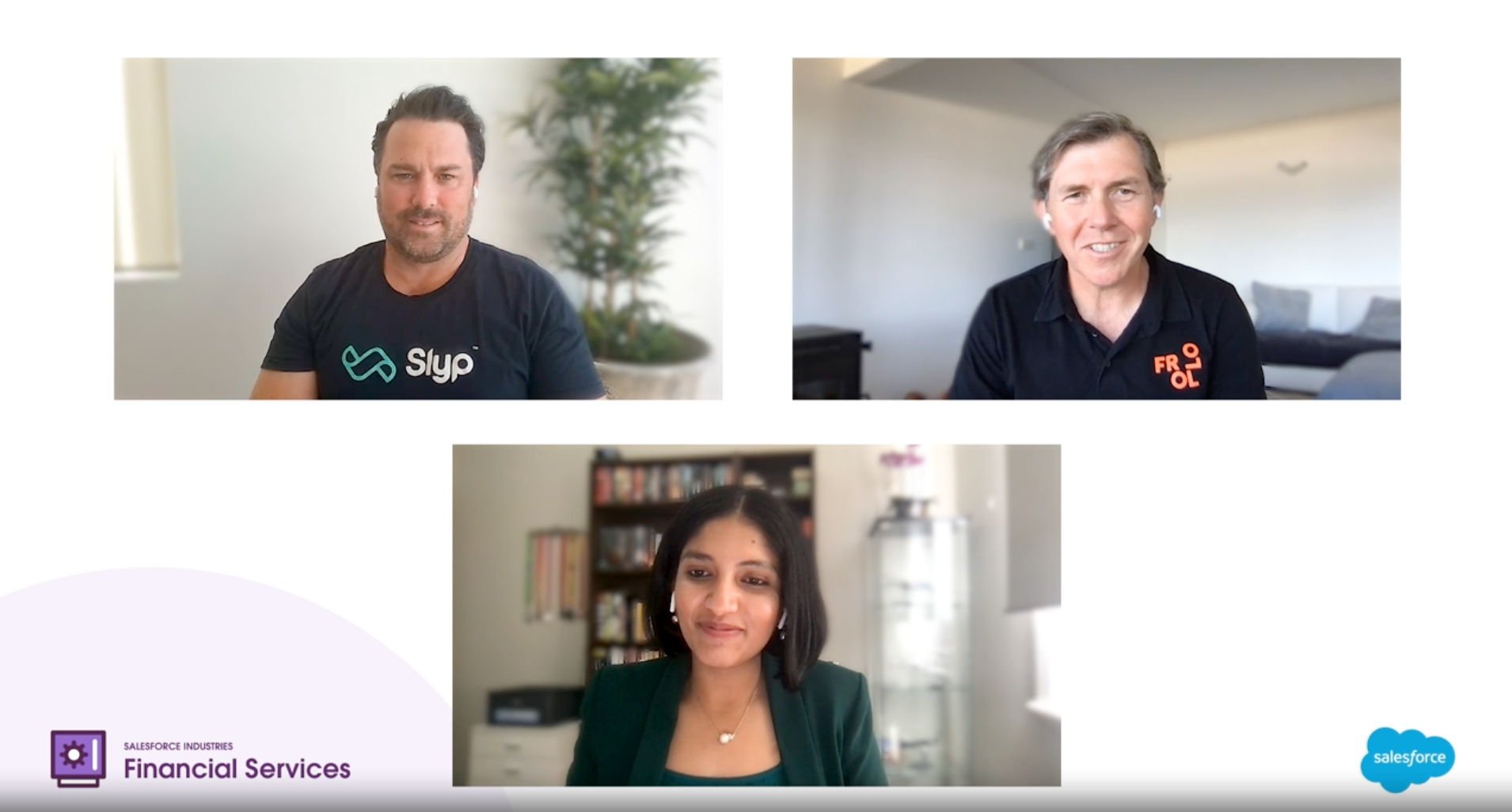
Meanwhile, Paul Weingarth, CEO and Cofounder at Slyp, has managed to provide benefits to both customers and financial institutions with “smart receipt” technology. Customers are surprised and delighted by the arrival of detailed (and paper free) smart receipts in their banking apps. Institutions are equally enthused by the fact that smart receipts increase customer engagement time, often leading to further app exploration.
But Paul clarifies that it’s not personalisation in and of itself that is key: “It’s not just about experience, it’s not just about data, or personalisation, or digital. It’s about all of that together — and putting that delight at the forefront”.
The “shared value” value model of doing business is here to stay
Sarah Downie, the CEO of the Shared Value Project, wowed the audience with the following statement:
“Business success (or the competitiveness of business), and society are intrinsically linked. The pandemic has made it clear that these two things are critically connected”.
Which is why “shared value” is such a vital concept in today’s world, because rather than social and environmental issues being a tacked-on concern, organisations are now seeing that weaving both into the fabric of the way they do business is the best way forward. It’s a win-win situation – where supporting these issues not only benefits society, but also business growth.
Examples of ANZ Trailblazers that have implemented such a model to great success include NAB, who through their Assist program have reduced financial hardship for customers, as well as provided wraparound services such as mental health and domestic violence support. In helping customers improve their lives, they become more financially viable – which benefits both them and the organisation.
For more memorable moments from the Industries Summit, watch the Retail event or the Financial Services event on-demand now.
Want trailblazer tips and thought leadership straight to your inbox?
















